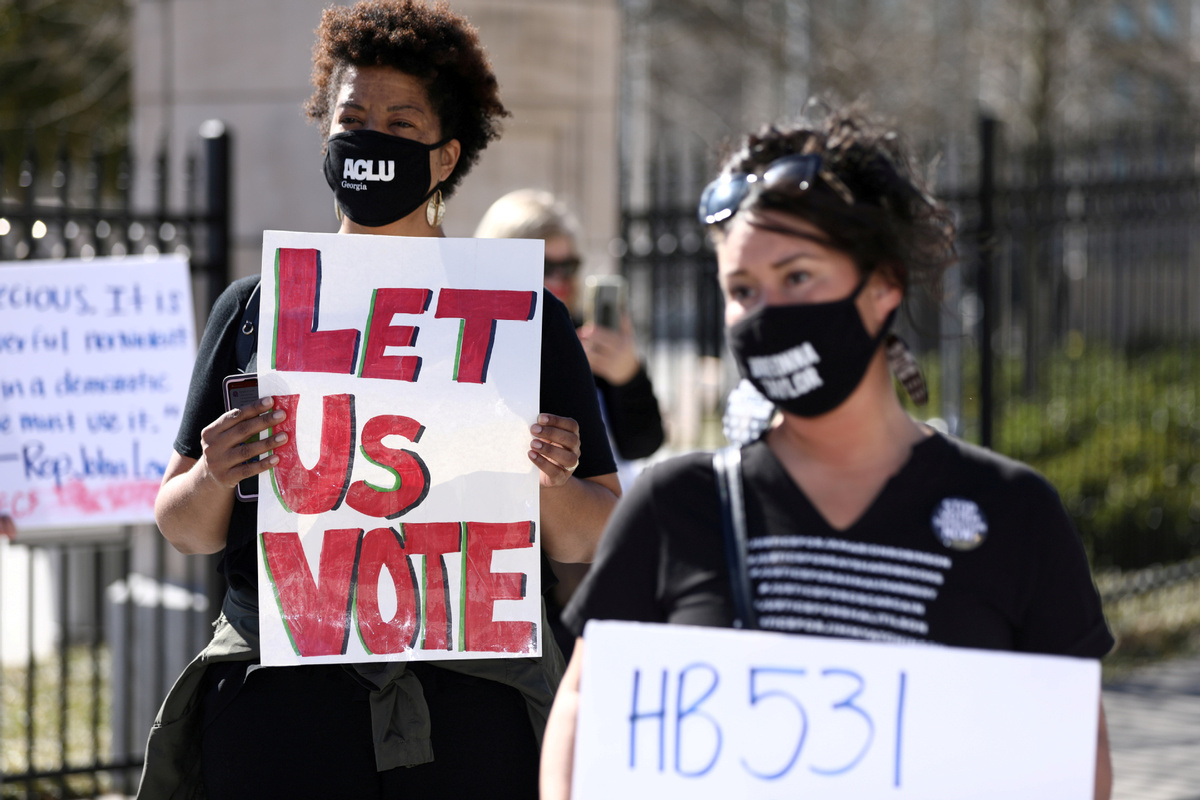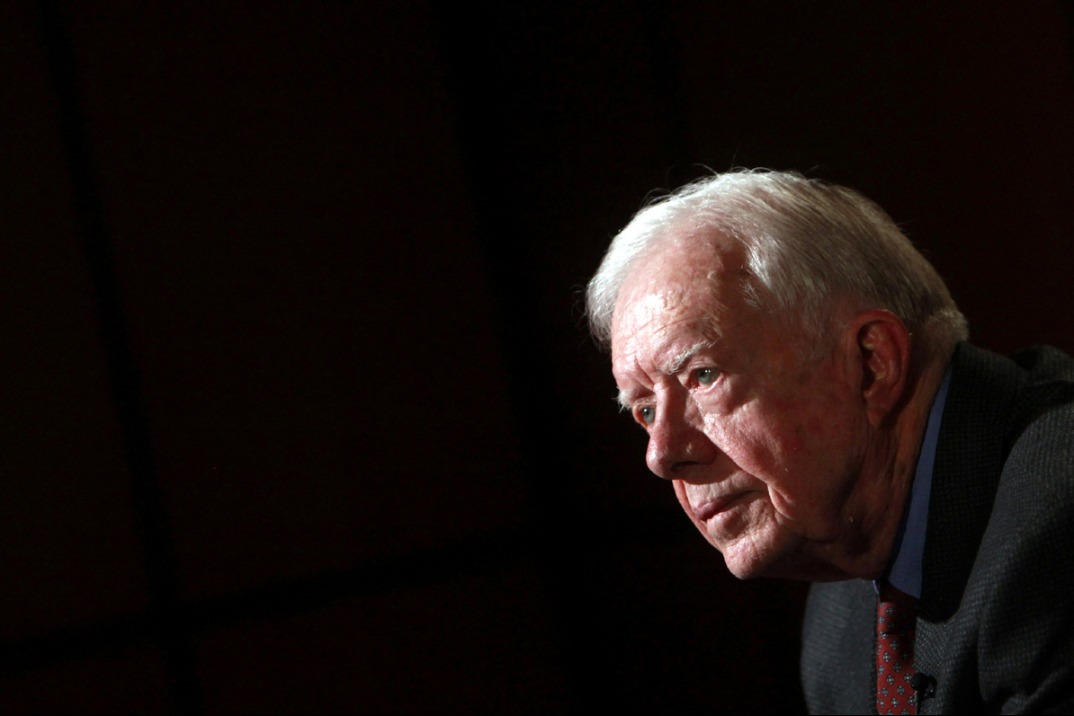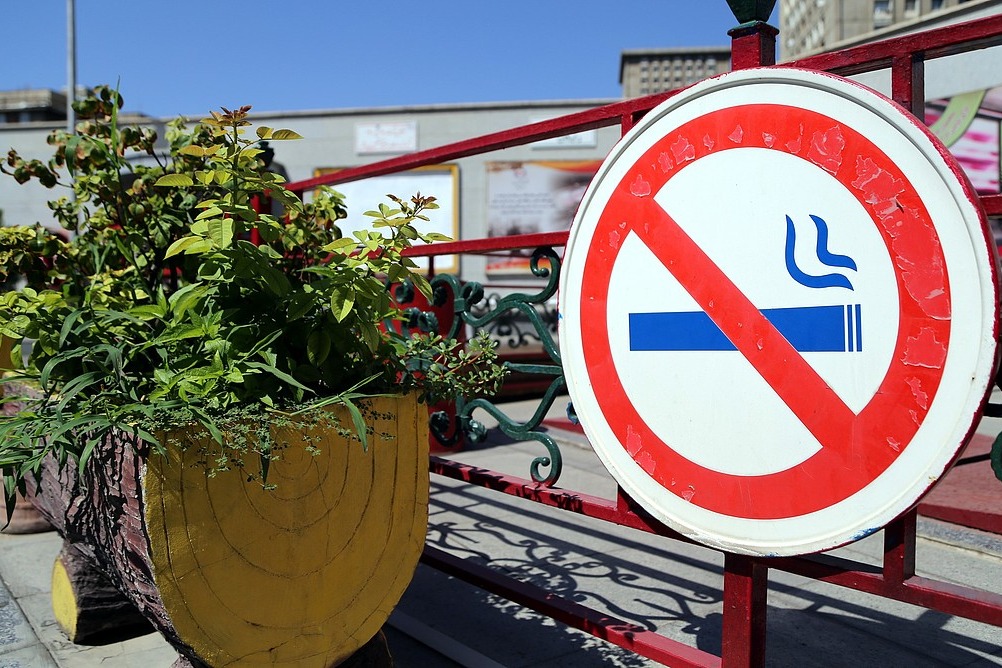Delta, Coke CEOs pivot on Georgia voting law


The CEOs of Atlanta-based Delta and Coca-Cola said Wednesday that a voting law passed last week by the Georgia Legislature is "unacceptable''.
Delta CEO Ed Bastian said in a statement that the new law was "based on a lie: that there was widespread voter fraud in Georgia in the 2020 elections".
"This is simply not true. Unfortunately, that excuse is being used in states across the nation that are attempting to pass similar legislation to restrict voting rights," he said.
Delta's statement came just after some of America's top black business leaders and CEOs released a letter condemning widespread efforts across the US to tighten voting rules.
"There is no middle ground here," Kenneth Chenault, the former CEO of American Express, told The New York Times. "You either are for more people voting, or you want to suppress the vote."
Later Wednesday, Coca-Cola CEO James Quincey said on CNBC: "Let me be crystal clear and unequivocal, this legislation is unacceptable."
The comments by Bastian mark a reversal from previous statements he made. Comments by Quincey are stronger than what the company said in a statement on Monday.
Both CEOs spoke out after black activists called for protests and boycotts against the companies, saying they need to do more to oppose the law.
After the Georgia Legislature passed its law on March 25, Bastian said he believed it had been improved and included several useful changes that make voting more secure.

On Wednesday, he reversed himself.
"After having time to now fully understand all that is in the bill, coupled with discussions with leaders and employees in the black community, it's evident that the bill includes provisions that will make it harder for many underrepresented voters, particularly black voters, to exercise their constitutional right to elect their representatives," Bastian said in a letter obtained by The New York Times. "That is wrong."
On Monday, a top Coca-Cola executive issued a statement saying the corporation was "disappointed in the outcome" of the legislation, but it didn't take a public position on the bill before it became law.
However, in an interview with CNBC Wednesday, Quincey called the legislation a "step backwards," pledging "to be more forceful in our public position, even more than we were earlier this week''.
Quincey said the company had opposed the bill from the start and had lobbied against it. "Our position remains the same: This legislation is wrong, it needs to be remedied, and we will continue to advocate for it both in private and now, even more clearly in public," he said.
Republican lawmakers in more than 30 other states, especially those considered political battlegrounds, including Florida and Arizona, are pursuing voting restrictions, which they say are aimed at curbing fraud.
The Republican-backed 98-page law signed by Governor Brian Kemp strengthened identification requirements for absentee ballots, gave lawmakers the power to take over local elections, sharply limited the use of ballot drop boxes, shortened early voting periods for state runoffs and made it a misdemeanor for members of the public to offer food and water to voters waiting in line.
"For Democrats, the left and their mainstream media cheerleaders, criticism of the Election Integrity Act is not about what SB 202 (the Georgia law) does to make our elections fairer and more accessible — it is about fundraising off fear and giving them more power," Kemp said in an opinion piece posted on foxnews.com.
"They believe that if they continue attacking hardworking Georgians who support election integrity by calling them 'racists' and 'vote suppressors', we will be silenced," Kemp wrote. "They will of course ignore that President Biden's home state of Delaware does not currently have early voting options for its citizens, while SB 202 guarantees at least 17 days of early voting access with the option of an additional two Sundays."
A lawsuit filed in US District Court in Atlanta on Monday called the law "an attack on democracy itself" and argued that the cumulative effect of many of the provisions would force more residents to vote in person on Election Day.
"For some Georgians, this inconvenience may be manageable," the lawsuit reads. "But for voters of color and other historically disenfranchised communities — who already suffer through disproportionately longer lines than white voters — it could be dramatic."
The complaint was brought by the Southern Poverty Law Center, the American Civil Liberties Union and the NAACP Legal Defense and Educational Fund
"What I'm worried about is how un-American this whole initiative is. It's sick. It's sick … deciding that you're going to end voting at 5 o'clock when working people are just getting off work," President Joe Biden said of the law at his first press conference on March 25.
The next day, Biden said in a statement, "Among the outrageous parts of this new state law, it ends voting hours early so working people can't cast their vote after their shift is over."
But a story by a Washington Post fact-checker said Biden was wrong, and it noted that nowhere in the law are voting hours limited and that early voting was, in fact, expanded.

































